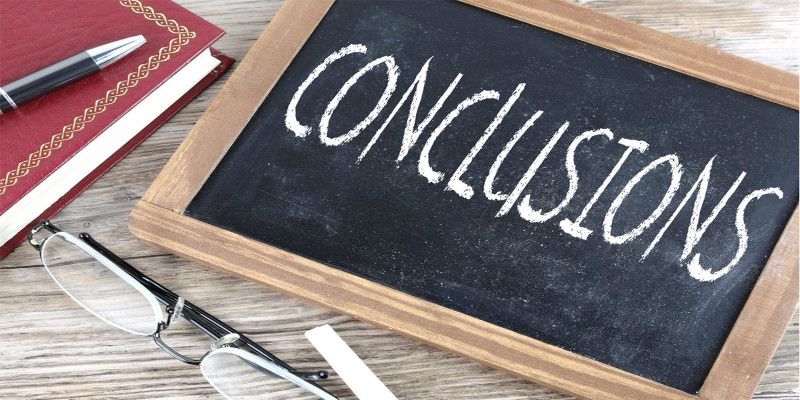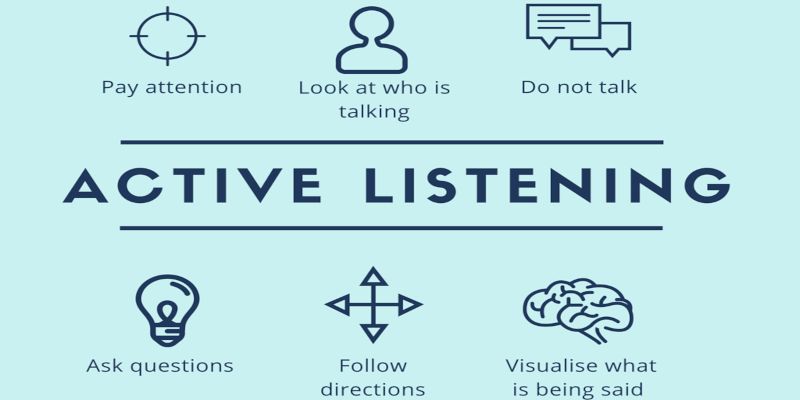Table of Contents
ToggleNaivety means showing a general lack of real-life know-how, judgment, or wisdom due to experiencing too few life events.
As a result, unsuspecting people are the perfect victims to fall prey to those looking to misuse them for their own benefit since they don’t recognize the surrounding threats.
That’s why I compiled the following list to learn how to stop being naive, so we can protect ourselves from those who want to take advantage of us.
Be cautious
Being careful is required since life is inherently dangerous. Bad things happen. Either voluntarily, but sometimes also unintentionally.
Some malevolent individuals are out to get you and are actively trying to exploit you for their gain. That’s why you need to tread and consider your options carefully if you wish to remain safe in the process.Be present in the moment

Being present in the moment can save you from a boatload of trouble. It’s better to be proactive and eliminate threats before they can develop and grow out of proportion.
If you’re daring enough to question other people to find out what their intentions are, then you will notice that you’re going to get better at judging the character of those around you. It’ll allow you to get rid of awful crowds before they can take advantage of you.
Practice objectivity
Being objective can aid in separating your feelings from facts and reason. That’s essential if we wish to see things as they are, rather than what we want them to be.
By the way, that’s also how we eliminate biases, which are part of the foundation that creates naivety in the first place. Prejudices serve no purpose other than living in a trance of blissful ignorance. But sooner rather than later, they’ll wreak havoc upon your life.
Do your research
Perform your research before speaking out or making judgments about things you don’t know all that much about. Being misinformed is bad, but being uninformed is even worse since that’s in your own hands.
Make sure to verify whether something is true or not, if someone has good intentions, and if those who are currently part of your life are worth keeping around. Get rid of the ones who don’t want the best for you, and are dragging you down along with them.
Engage in active listening

Most people observe without really paying attention. But when actively listening, you’re truly taking notice of everything that your conversational partner is telling you. And you would be amazed how much you could pick up from that, and what people are down to tell you if you just tune in.
If that’s true, then why don’t more people genuinely attend to one another?
Because most of us like being the center of attention. We typically enjoy taking the spotlight so much that we’re simply anxiously waiting for our time to chime in instead of listening to what is being told. That’ll cause you to miss out on vital information that could be extremely important and valuable to you.Talk less, listen more
In line with my previous point is talking less, and using that spare time to observe. You can’t learn anything novel when you’re spending all your time talking instead of tuning in to the valuable insights of others.
That’s why I advise everyone to start listening more instead of speaking all the time. While being in the limelight might admittedly feel good in that given moment, it’s not necessarily beneficial for the future you.
Seek out novel experiences
One of the ways we get better at something is by learning through practical, real-life experience. That’s why it’s only logical to seek out fresh occurrences, so we can become more experienced and knowledgeable.
The single best thing you can do to gain familiarity is to simply live your life, and analyze past occurrences to figure out what went right, what went wrong, and what didn’t pan out as expected.
More importantly, it permits you to understand why that’s the case.Be alert
Being alert means we’re mindful of ourselves, but more importantly, of our immediate surroundings.
Once you’re aware of what’s going on around you, you’ll be able to figure out potential threats more rapidly. That way, you can avoid them before they become problematic.
You’ll also get the additional benefit of becoming more conscious of all the possible dangers and bad things going on in our existence. Still, knowledge is a curse at times. And knowing too much can be a painful experience while making life harder as well.Learn to read others

Once you know that some try to conceal their real intentions, you know that you have your work cut out for you since you’ll have to learn how to read others if you wish to protect yourself from misuse.
One of the best ways to do so is by observing others, and by looking at the results that their actions are producing, regardless of what they’re saying.
“Regardless of what they’re saying” is important here since words are typically meaningless. It’s the actions that determine what people are really thinking, or attempting to accomplish most of the time.Travel more
Traveling means you’re bound to meet many people from all walks of life, leading to a host of new situations and, consequently, experiences.
Not to mention that our world is so vast that it’s absolutely beautiful to explore. Who knows, it might even enrich your life by discovering a novel, unexplored part of yourself and the universe.
Meet people from different backgrounds
Different strokes for different folks. Nevertheless, meeting a variety of people with different backgrounds permits us to investigate different aspects of our personality and life to figure out what we desire, and what’s objectively true.
That simply can’t be accomplished by staying in your lane without researching different avenues. So even though we might not necessarily like characters that differ too much from ours, it’s still a priceless learning experience.
Have confidence in your abilities

You can’t teach yourself how to recognize naive people if you don’t trust your abilities to assess others correctly. If you don’t believe in yourself, then that inherently means that you’re dependent on others to think for you.
That’s not always a bad idea, but you don’t always have the luxury of having peers around to judge for you. There’s also the uncomfortable fact that everyone makes errors, so it’s best to become competent yourself, and to learn how to recognize the true intent of those around you.
Learn to recognize signs of dishonesty
People are surprisingly adept at hiding their purposes and lies. Hence, it’s not always that easy to reason out whether someone’s telling the truth or not.
Again, I value and utilize the tip of looking at whether people are true to their word to figure out if they’re hypocrites or not, and by viewing what outcomes their behavior is producing. If they’re not doing what they’re telling me, then I know that they aren’t the most trustworthy individual in the first place.
Volunteer
Volunteering is a great way to get firsthand knowledge of how the world operates, and how to face the harsh realities instead of the facade and lies we’re typically told to keep us in line without bickering too much.
Don’t underestimate the value of real-life understanding. Learning through books is a great way to get familiar with the facts and subject at hand, but is not a substitute for getting out there and getting direct education from experienced mentors.
Get out of your comfort zone
Getting out of your comfort zone is required if we want to learn fresh things, and to get better at our current skill set.
Living your life is crucial if we want to stop being naive, and protect ourselves from people attempting to take advantage of us.
This means we have to take our chances by trying something different such as practicing novel sports, meeting new people, and trying unexplored strategies.Think before acting

Thinking before acting is a great tip that I can always advise. Not just to stop naivety, but also to limit the amount of stupid mistakes we make.
Impulsive decisions based on our current emotions are rarely beneficial to us in the long run. That’s why we need to take some time to think things through carefully before making a choice.
Don’t ignore your gut feeling
Just because you consider your options carefully by employing your rational, objective mind doesn’t mean you should ignore your gut feeling, either.
Occasionally, our first feeling about a given situation is the correct one, and a hunch can be right. That’s why we should also learn to rely on our senses to inspect whether something is true or not, and if we can trust the people in our life.
Continue to trust people, despite possible setbacks
Despite making a guide about how to stop being gullible, I don’t want you to stop trusting others.
It takes a brave person to continue to trust others, despite having their trust broken before, and knowing all too well that there are some out there seeking to exploit you. But our loved ones are what makes life worth living. And we couldn’t have established these bonds if we didn’t rely on and trust them in the first place.
So don’t be too innocent, but don’t close yourself off to the possibility of meeting fantastic new folks who can enrich your existence.
How to stop being naive in a relationship?

- Applying common sense
- Practicing objectivity
- Trusting our gut
Employing common sense and practicing objectivity is surprisingly hard to do when you’re in love with someone.
That’s because love involves strong emotions, which inherently lean toward subjectivity and emotional decision-making.
Yet, try to see your partner for what they truly are instead of what you want them to be. We typically see the idealized version of our spouse, but I implore you to see others for what they are, despite how much we might care about them.
Frequently Asked Questions (FAQ)

Signs of a naive person
- Lacking self-awareness.
- Lacking experience.
- Being overly trusting of others.
- Immature.
- Dependent on others for survival.
- You grew up sheltered and protected.
- Gullible.
- People take advantage of you.
- You’re young.
- Inability to think critically.
- Not taking the time to think.
- Adventurous.
- Incapable of keeping secrets.
- Afraid of the opinions and reactions of others.
- Changing your mind based on other people’s opinions.
- Scared to share your perspective with others.
- Never getting out of your comfort zone.
- Refusing to listen to reason.
- Being impressionable.
- A general unwillingness to change.
- Limited life experience.
- Being afraid to judge.
- Overly shy.
- Not protecting yourself.
- Lack of wisdom.
- Misinformed or uninformed.
- Making excuses for the poor behavior of others.
- Overconfident or insecure.
- Carefree.
- Inability to make decisions.
- Refusing to fact-check.
- Exhibiting wishful thinking.
- Always seeing the best in people.
- Lack of skepticism.
- Easily swayed by emotions over logic.
- Possessing many biases.
- Too idealistic.
- Ignoring obvious signs and red flags.
- Not questioning the motives of those around you.
- Not considering how your actions impact others.
Despite being possible signs of a naive person, being young or adventurous, for instance, doesn’t necessarily mean you’re automatically gullible by default.
It just means that these are potential clues to look out for to recognize likely weaknesses.
Is being naive a bad thing?

Yes, it is a bad thing because it means you’re susceptible to being taken advantage of, and because you’re in danger since you don’t recognize the surrounding threats.
Being overly trusting of other people due to a general lack of real-life experience regarding how the world works might get you hurt or exploited by malevolent individuals.
Still, there are some small upsides to it as well, such as allowing you to remain more optimistic, and more readily searching out new experiences.
Nonetheless, I prefer to deal with the harsh reality of life rather than living in blissful ignorance. My background tells me that naivety is often preyed upon by others, leading to poor circumstances in the end.
Why am I so naive?

Final note

Learning how to stop being naive is something doable, and well within your reach.
Still, the solution to your problem might not be what you expected or wanted to do. Putting yourself out there is necessary to gain new, valuable acquaintances, but might feel uncomfortable and anxiety-provoking at first.
When all is said and done, it’s in your own best interest to gain as many novel experiences as you can to learn how the world and its inhabitants operate. It’s the only way to protect yourself against those looking to take advantage of you.





